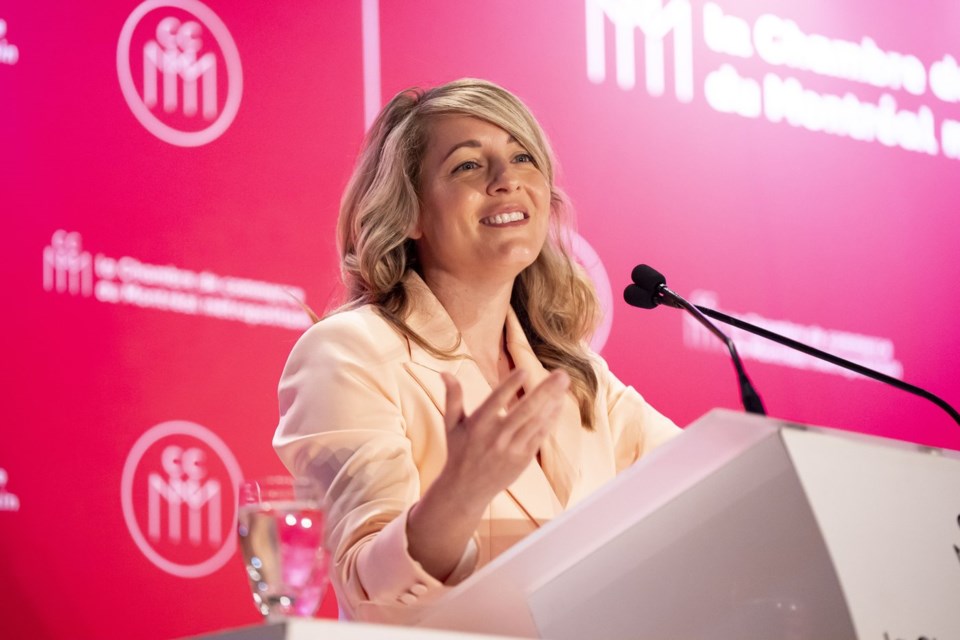MONTREAL — Industry Minister Mélanie Joly says the massive funding announced this week for Canada’s defence industry will filter down to all regions of the country, as the federal government looks to jump-start domestic and overseas trade and reduce reliance on the United States.
At a speech to Montreal's chamber of commerce Wednesday, Joly said the provinces are not in competition for the $9.3 billion in additional spending to be allocated by March 31, but rather in co-operation.
The minister says the windfall will benefit companies beyond the military realm, trickling through the supply chain and across sectors ranging from aerospace and manufacturing to critical minerals and artificial intelligence.
On top of meeting NATO’s target of two per cent of GDP, the defence expenditures aim to reduce Canada's dependence on the United States and pave the way for stronger ties to Europe and "certain countries in Asia" and the Persian Gulf.
The emphasis on greater self-reliance and trade diversification comes as Canada grapples with an increasingly unpredictable southern neighbour whose president has threatened to make Canadians denizens of a "51st state," on top of a months-long trade war.
Joly says recent U.S. tariffs including the 50 per cent duties on steel and aluminum imports imposed by President Donald Trump are "completely illegal."
As a result, Canadian defence projects will prioritize domestic metal, she said — though Joly did not specify how the government would enforce any Canadian content rules.
Her remarks come a day after a U.S. federal appeals court agreed that Trump’s sweeping global tariffs will remain in place while a case is heard.
“We are too dependent on the United States,” Joly said.
To build a more independent defence sector, companies from coast to coast can expect to see their "fair share" of the tens of billions of dollars in spending now budgeted by the Department of National Defence this fiscal year, she said, stressing the ripple effects for the broader economy as well.
"There's enough investment for everyone to benefit. And when we think of military investment, we shouldn't think that it's purely military," she said.
"Canada is not for sale, but we're open for business."
Joly is eager to foster growth not just in the economy, but in the academy.
The minister highlighted a "golden opportunity" to poach researchers from the United States, with several prominent academics already having left the country due partly to the political climate.
"My goal is to seek out 1,000 researchers from the United States to bring them to Canada," she said.
This report by The Canadian Press was first published June 11, 2025.
Christopher Reynolds, The Canadian Press



